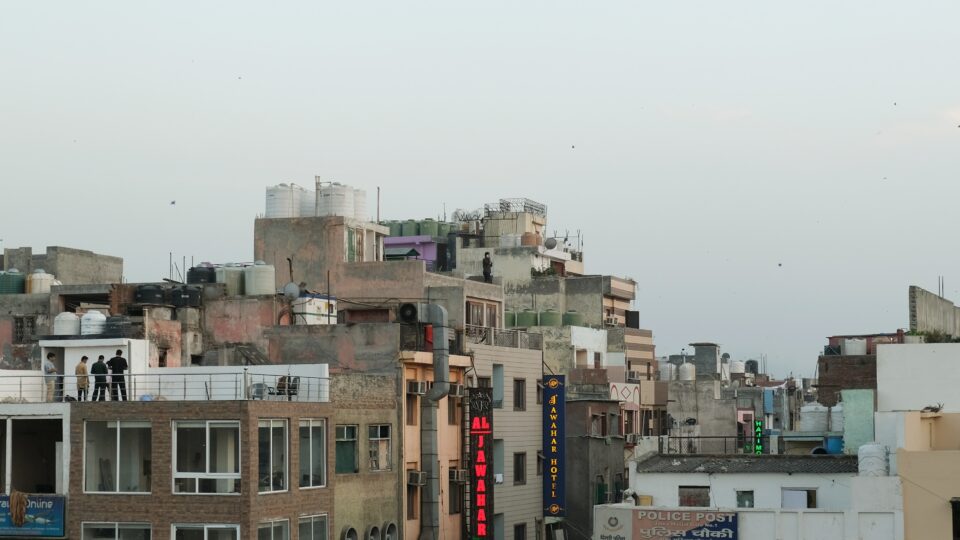
A Snapshot of Delhi
Delhi is the second biggest city in the world. In the last decade, the population has grown from approximately 17 million to 30 million. By 2030, some say it will surpass Tokyo. But Delhi isn’t just vast, it’s also ethnically and religiously diverse. Here’s a glimpse: our six-month-old, English-language church plant already contains people from five different languages and people groups. In terms of Delhi’s religious landscape, Hindus are the vast majority (82.3%) while Muslims (12.1%), Sikhs (3.1%), Christians (0.7%), and other small religious groups (1.4%) comprise the minority.1
Though there has been a Christian presence in the city for over 250 years, less than 1% of the population identifies as Christians. This figure is likely inflated because it includes Roman Catholics, prosperity gospel adherents, Eastern Orthodox, Pentecostals, Methodists, Anglicans, Baptists, Presbyterians, Independent Bible churches, and several house churches. Delhi is not exactly the buckle of the Bible belt. It’s one of the most unreached cities in the world.
As India’s political hub, Delhi is the gateway to the rest of North India. What happens here affects billions of people. All of this makes Delhi a strategic place for evangelism, discipleship, pastoral training, and establishing healthy churches.
Here are three reasons you should consider ministry in Delhi.
1. God’s Concern
The book of Jonah ends with an amazing window into God’s heart towards the lost. “Should I not pity Nineveh, that great city, in which there are more than 120,000 persons who do not know their right hand from their left, and also much cattle?” (Jonah 4:11). This description reminds me of home. Every day, I see herds of cattle walking alongside thousands of immortal souls who don’t know their right hand from their left.
God’s heart goes out for all nations just as it did for Nineveh (Mk. 16:15). This includes millions of lost souls in Delhi. God longs to see Christ magnified among Delhi’s various languages and people groups. He longs to show mercy to them. He longs for the people of Delhi to be poured out as a living sacrifice in response to Christ’s sacrifice for them (Rom. 15:15–16). He longs to see people turning from idols to serve Him. We must be concerned about the lost souls in Delhi because God is concerned about them.
2. Paul’s Concern
Despite Paul’s desire to be with the saints in Rome (Rom. 1:15), he prioritized planting churches among unreached territories (Rom. 15:19b–22). The Christians in Rome already had the gospel. The Christians in Rome were filled with all goodness and knowledge, and they were able to instruct one another (Rom.15:14). But those in unreached regions had no one to instruct them with the Word (Rom. 10:9,14).
Paul prioritized advancing the gospel among the people and places where Christ was not known, worshiped, and not even mentioned. We should seek to follow his example with our resources and our personnel. This includes the city of Delhi.
Of course, the West needs more healthy churches, too. I’m not recommending an either/or strategy but a both/and strategy—with a particular concern for prioritizing work where there’s the most need. Put simply, Western churches have a wealth of qualified pastors who can equip the saints for the work of service (Eph. 4:12). Meanwhile, churches in Delhi lack qualified pastors who can rightly divide the word of truth (2 Tim. 2:15).
In fact, few men here—even those who have pursued theological training— aspire to pastoral ministry. Most seem more interested in joining an NGO or parachurch ministry. Why is this? Perhaps they have a low view of the church and pastoral ministry; perhaps churches have failed to identify and raise up gifted pastors.
The point is simple: we need theologically sound indigenous pastors who would then teach others to teach (Mt. 28:18–20; 2 Tim. 2:2). We need long-term workers with healthy ecclesiology. We need to invest in the long, hard work of training young men to be pastors who are committed to establishing healthy churches throughout Delhi.
3. Our Concern
Sadly, churches that started over 50 years ago through missionary efforts have become stagnant; some are drifting away from sound doctrine. These churches are increasingly marked by nominalism and lukewarmness. Sometimes, it’s hard to differentiate between the church and the world. Other churches are largely influenced by prosperity theology or preoccupied with encountering God through an “experience.” Few churches can be fairly called gospel-preaching churches.
My family and I recently moved back to Delhi after spending several years in the West. We love the people of the city and we long for them to know Jesus and to grow in Him (Col.2:6). With God’s help, we are committed to laboring here for the long haul. We pray that God would raise co-laborers to join us in the crucial work of establishing healthy churches.
Gospel Hope
Despite the bleak picture of Christianity in Delhi, God is at work. Our churches here may not look as fascinating as the Hindu temples, but God is building His temple on Jesus Christ for the purpose of declaring His praise (1 Pet. 2:4–10). Though the work may be slow and the soil may be hard, we trust that in due time, the word sown on good soil will bear much fruit (Mk.4:20). God will bring people from every tribe and tongue in Delhi for Himself (Rom. 15:21, Rev. 5:9–10).
I’m living proof of God’s commitment to his promise to save. Twenty-four years ago, God saved me out of an idol-worshiping Hindu home. He used the faithful witness of several Christians in the city. Just as He has done this work of salvation in me, I am confident that He will call many more to Himself in the city of Delhi.
————————————————-
Want More Content Like This?
We will deliver Reaching & Teaching articles and podcast episodes automatically to your inbox. It's a great way to stay on top of the latest news and resources for international missions and pastoral training.
